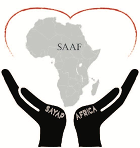Skills Development
Low skills perpetuate poverty and inequality. Skills development can reduce unemployment, raise incomes, and improve standards of living. Helping young people develop skills makes economic sense in Africa.
According to the World bank 1/3 of the working age population in low- and middle-income countries lack the basic skills required to get quality jobs, leaving them unable to achieve their full productive potential and limiting economic investment and growth.
Vocational or Technical Training
It is a crucial element as it can link young people’s competences with employers’ needs. Foundational skills such as literacy are a prerequisite for numeracy, problem solving and socio-economic skills. Unskilled workers and educated young Africans are forced into unemployment or stuck in unstable low wages jobs. Bringing vocational training closer to the needs of dynamically changing and evolving labor markets and economies can help young people in Africa move into more productive and sustainable jobs or create their own small businesses. Informal sectors activities are most of the times the only avenue for educated and non- educated young people to make a living.
Short Terms Training Based on Markets Needs
In collaboration with the Sayap Africa team in Europe, a hub will be created in Cameroon with a show room of specific vocational training in high level plumbing of the 21 century where trainees will learn to conceive, design, implement and deliver a state of art project to clients and customers.
Training as carpenters with local material and wood will allow more than 1000 young people to be trained every three months
Relevance
Technical and vocational training can last anywhere from 6 months to 3 years giving young people especially women the skills to create their own business or to get a job.
There are a wide range of training programs that are relevant to African labor markets from teaching specific skills to sparking entrepreneurship. Less than a 1/3 of training programs have positive results for earnings and employment and are sometimes very costly to justify the investment BUT private sectors partnerships and strategic training based on market needs have been important in helping create programs that match the needs of the labor market and technical skills.
Innovation, Partnerships Needed for a Stronger Workforce in Africa
Building skills in applied sciences, engineering and technology may also hold the key to the economic transformation of sub-Saharan Africa which ranks among the lowest in the world. With its rapidly growing youth population and 11 million new graduates entering the job market each year, the region needs to work quickly to find solution to its skilled labor deficit while building self sufficiency in fighting modern challenges like climate change and global pandemics.
The Need for Private Sector Development to Absorb Youth Unemployment
While providing technical and vocational training for young people, we also need to help grow businesses in the private sector to hire and utilize their new skills. This can be done through developing new businesses. Private sector development involves both teaching entrepeneurs and providing access to capital to help these entrepreneurs start and grow their businesses. Working with professionals in both the U.S. and France, we provide the resources to teach young entrepreneurs marketing, financial accounting and operational skills for starting and building their business. Through gathering funds and channeling funding capital, we can also provide micro-lending to these young businesses.
Our Strategy for Creating this Robust Private Sector in Africa
We will be creating new business “incubators” where African entrepreneurs can gather to work together. In these incubators, these entrepreneurs can learn business techniques, gain access to start-up capital, and share information and experience on how to successfully launch and grow their businesses. Training and lack of access to capital are the main issues preventing private initiative in Africa. Sayap Africa, through international investors and the African Diaspora, will provide aid to promote business literacy and provide access to capital (through micro-lending) to create new business opportunities. This will ultimately provide career opportunities for skilled labor in many key business sectors of the African economy like construction and technology.
We need you and your help
It’s impossible to help people without people helping others. We always need volunteers who love to help.
